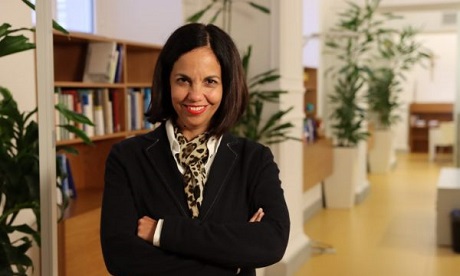A New Zealand-based theologian and academic says the vow of obedience religious people make needs redefining.
Dr Rocio Figueroa made the comment after Pope Francis urged religious and consecrated women “to fight when, in some cases, they are treated unfairly, even within the church; when they serve so much that they are reduced to servitude, at times, by men of the church”.
Figueroa – who has academic positions at both Auckland and Otago universities – says the challenges women religious face are inflicted by male clerics and, as a result of glaring internal challenges inside religious communities, need to be addressed.
The Church’s concept of the vow of obedience is one such challenge, she says.
“Because it is ill-defined, it has enabled the abuse and mistreatment of religious women for decades.
“At the beginning, the vow of obedience began with the monks,” she explains. They were obedient to their abbot, who represented God. By obeying him they were obeying God.
This definition of obedience has continued until today, Figueroa says.
It has resulted in complaints of psychological and spiritual abuse, about abuse of authority and toxic and militant cultures from many religious orders.
Religious are told to see this treatment as the will of God, the plan of God, and not to question it, she says.
“It’s not just the problem of an abusive leader, it’s a problem of how the system really enables abuse, in a way.”
Figueroa would like to see religious obedience adopting a more open, cooperative connotation where people could speak freely.
“It will perhaps be messier, there will be more discussions, but it’s human society, it’s a family. You talk things through,” she says.
Obedience “cannot be the submission of your will and thought”.
Figueroa says the vow of obedience ought to be modelled on Jesus, who in the Gospels consistently says he is obeying his Father’s will. He wasn’t obeying other people.
“The obedience in the Gospel is an act of trust, an act of following God’s commandments and following his love, so it’s an obedience full of love and trust in a relationship between Jesus and God the Father”.
However, this isn’t the experience of many religious today. Most are women but the ones who write the documents determining what the religious vows mean in practice are always men.
Obedience and the Church’s fundamental understanding of it “won’t change until women have a voice in the definitions, in the teachings of the Church,” Figueroa says.
This requires more than just a change in policy, it needs a systemic change away from the male-only world view.
“It would be important to have more women, to exercise authority in a woman’s way, because the problem now is that we have a lot of women who are exercising authority in a patriarchal way,” and that has caused problems, she says.
“Until we have another way of exercising authority, it will be very difficult.
“We have to create a new model for exercising authority”.
Source
- CruxNow
- Image: iadc@unigre
News category: New Zealand.




